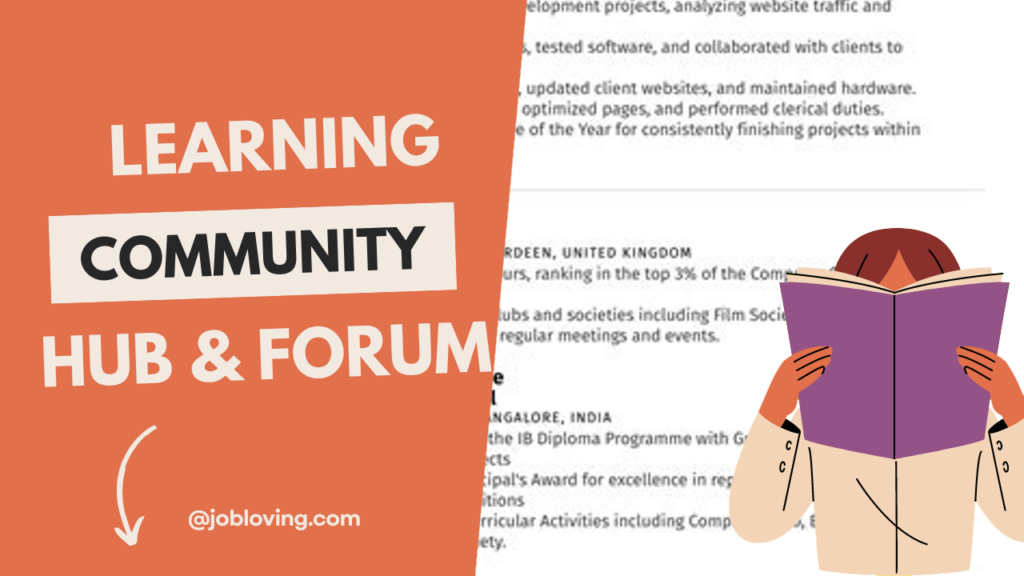Have you ever wondered how you can truly stand out in a sea of resumes? Whether you’re fresh out of university or a seasoned professional, adding those little accolades can really give you an edge. One such accolade is ‘Distinction’—but how exactly do you flaunt it without sounding like you’re bragging? Let’s break it down!
The Short Answer: Use ‘Distinction’ to Highlight Academic Excellence
It’s appropriate to use ‘Distinction’ on your resume when referring to an academic achievement that truly sets you apart, like graduating with distinction.
When you’re jazzing up your resume with your academic achievements, ‘Distinction’ can add a flair of excellence that makes hiring managers take notice. For example, you could effectively phrase your accomplishment as “Graduated with Distinction from XYZ University” or “Received Distinction in Advanced Mathematics.” This not only showcases your academic capabilities but also signals to employers that you have a dedication to excellence.
In addition to making your resume pop, mentioning specific achievements gives employers a clearer picture of your credentials. So, whether it’s your major accomplishments or specialized courses where you excelled, don’t hesitate to let that ‘Distinction’ shine! Plus, incorporating these accolades can convey your strong work ethic and commitment to your field of study, which is something every employer appreciates.
Now that you’re armed with the knowledge of how to sprinkle some ‘Distinction’ magic on your resume, why not join the JobLoving community? It’s chock-full of resources and tips that can turn your job search into a delightful adventure. Got more questions? We’re here to help!
Key takeaways about how to put passed with distinction on a resume
Emphasizing Academic Achievements
- Highlighting ‘Distinction’ on a resume emphasizes exceptional performance, differentiating candidates from their peers effectively.
- Listing “passed with distinction” adds credibility to your academic achievements on a resume or CV.
- Mentioning specific honors, like “Graduated with Summa Cum Laude”, provides clarity and impact on resumes.
- Including notable honors or awards elevates a resume, emphasizing a high level of academic or professional success.
- Distinctions like Cum Laude can enhance a resume but should not overshadow relevant work experience.
- Highlighting academic achievements effectively requires balance between GPA, distinctions, and applicable work experience.
- Clarity in presenting academic achievements helps employers quickly assess qualifications and potential fit for roles.
- Distinctions are more impactful when combined with strong internships or relevant job experiences on a resume.
Using Effective Language and Presentation
- Synonyms for ‘Distinction’ like ‘Accolade’ or ‘Recognition’ enhance resumes by conveying accomplishment and exceptional performance.
- Descriptive terms like ‘Excellence’ or ‘Merit’ effectively replace ‘Distinction’, maintaining the emphasis on high achievement.
- Employing synonyms for ‘Distinction’ allows candidates to articulate their accomplishments in diverse, impactful ways.
- A strong resume statement should detail specific contributions, enhancing clarity and demonstrating measurable success.
- Clear distinctions in language can better communicate achievements, leading to a more compelling resume narrative.
- A discerning use of ‘Distinction’ ensures that only significant achievements are highlighted on resumes.
- A concise presentation of academic achievements enhances readability and professionalism in a resume format.
Context and Industry Perception
- Graduate programs may value distinctions more than employers, especially for competitive fields like engineering.
- Employers often prioritize GPA over distinctions, particularly if it demonstrates strong academic performance consistently.
- A GPA of 3.5 or above is generally sufficient for competitiveness in many engineering roles.
- Some employers might overlook distinctions, focusing instead on practical experience and skills demonstrated.
- The perception of distinctions varies by industry; some may view them as less significant than others.
- Distinctions may be more relevant for recent graduates; seasoned professionals can prioritize experience over grades.
Tailoring Resumes to Job Descriptions
- Tailoring resume language to match job descriptions increases the likelihood of attracting potential employers’ attention.
- Highlighting collaborative contributions on a resume showcases teamwork skills, essential for many professional roles.
- Specificity in achievements, such as project milestones, conveys a stronger narrative of professional success.
- Academic honors should complement a resume, not dominate it, allowing space for skills and experiences.
- Employers appreciate candidates who can articulate how their academic achievements relate to job performance.
- Reflecting on the significance of achievements ensures precise language that accurately represents professional accomplishments.
- Recognizing the context of achievements helps in selecting the most effective language for resume enhancement.

